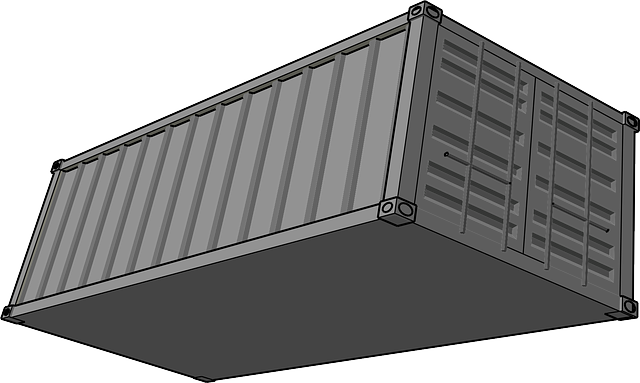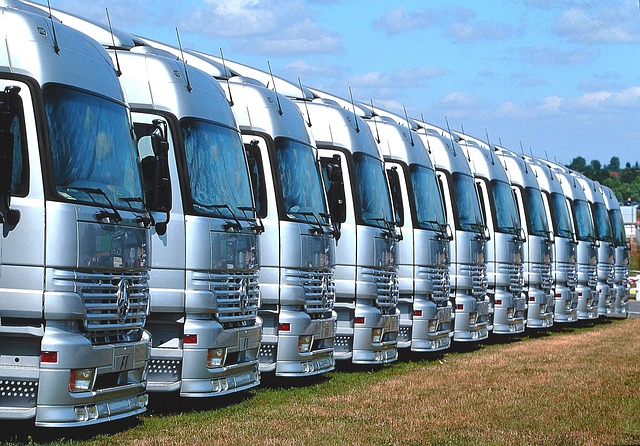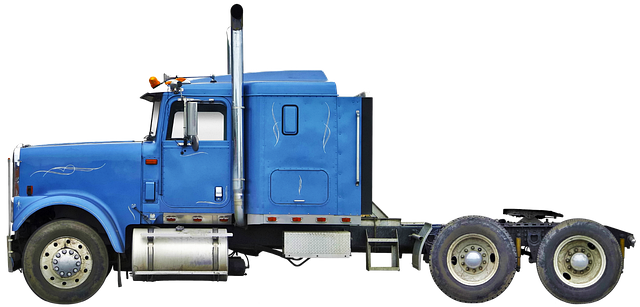Every box truck fleet faces unique risks requiring a specialized insurance policy encompassing cargo protection, driver coverage, and comprehensive vehicle insurance. This ensures peace of mind and safe operations. When choosing a policy, consider your fleet's specific needs, risk assessment, and coverage requirements by comparing quotes from multiple providers. Thoroughly read policy details to avoid financial surprises. Maximizing benefits involves strategic risk management strategies, regular maintenance, driver training, and advanced tracking systems for enhanced operational efficiency and financial security.
In today’s dynamic logistics landscape, ensuring robust protection for your box truck fleet is paramount. This comprehensive guide delves into the intricacies of professional insurance for these versatile vehicles, highlighting unique risks specific to box trucks and navigating the diverse coverage options available. From understanding liability concerns to selecting tailored policies, this article equips fleet managers with essential knowledge to maximize benefits and mitigate risks effectively. Discover how the right box truck policy can revolutionize your operations.
- Understanding Your Box Truck Fleet's Unique Risks
- Types of Insurance Coverage for Box Trucks
- Choosing the Right Policy: Factors to Consider
- Maximizing Benefits and Risk Management Strategies
Understanding Your Box Truck Fleet's Unique Risks

Every box truck fleet faces unique risks that must be considered when crafting a comprehensive insurance policy. These risks extend beyond the standard coverage needs of other types of vehicles, given the specialized nature and use cases of box trucks. For instance, policies should address the potential for high-value cargo, which requires advanced protection against theft and damage. Additionally, fleet managers need to account for various driving conditions, from navigating narrow city streets to transporting goods across long distances, each presenting distinct safety challenges.
Understanding these nuances is crucial when selecting a box truck policy. Insurers should offer tailored solutions that incorporate specific coverage options such as cargo protection, liability for on-premises operations, and comprehensive insurance for both drivers and vehicles. By aligning the policy with these unique risks, fleet owners can ensure they are adequately protected against potential losses or accidents, promoting peace of mind on the road.
Types of Insurance Coverage for Box Trucks

Box trucks, with their versatility and widespread use in various industries, require tailored insurance policies to safeguard against potential risks. When it comes to insuring a fleet of box trucks, businesses must consider several essential coverage options. A comprehensive box truck policy typically includes liability insurance, which protects against claims arising from accidents or damage caused to others or their property. This is crucial for mitigating financial losses and legal liabilities.
Additionally, cargo insurance is an integral part of any box truck policy, ensuring that the valuable goods being transported are protected against theft, damage, or loss. This coverage provides peace of mind, especially for businesses dealing with high-value shipments. Other relevant options include physical damage coverage to protect the trucks themselves from accidents, natural disasters, or vandalism, and fleet management liability, which addresses issues related to vehicle maintenance and operational risks specific to fleets.
Choosing the Right Policy: Factors to Consider

When selecting a box truck policy, several key factors come into play. Firstly, understand your fleet’s unique needs—the types of goods transported, routes taken, and driver experience. This influences risk assessment, which directly impacts premium costs. Different insurance providers weigh these considerations differently, so comparing quotes from multiple carriers is essential.
Additionally, consider the coverage limits, deductibles, and exclusions offered by each policy. Ensure that liability, property damage, and cargo protection align with your requirements. Understanding what’s covered and what isn’t can save you from unexpected financial burdens in case of accidents or theft. Remember to read the fine print and ask for clarifications where needed to make an informed decision about your box truck policy.
Maximizing Benefits and Risk Management Strategies

Maximizing the benefits of a box truck fleet policy is a strategic approach that goes beyond basic coverage. It involves understanding your operations and vulnerabilities to tailor risk management strategies. One key strategy is to ensure comprehensive insurance, going beyond liability to cover physical damage, cargo loss or damage, and driver protection. This holistic approach shields businesses from significant financial losses.
Moreover, effective risk management includes regular fleet maintenance checks, driver training on safety protocols, and implementing advanced tracking systems. These measures not only reduce accidents but also provide valuable data for claims adjustments and future policy negotiations. By integrating these practices, fleet owners can optimize their box truck policy, enhancing operational efficiency and financial security.
When managing a box truck fleet, selecting the appropriate professional insurance is key to mitigating risks and ensuring business continuity. By understanding your fleet’s unique hazards, exploring diverse coverage options, and carefully considering your policy choices, you can tailor a comprehensive box truck policy that offers robust protection. Implement risk management strategies to further minimize potential losses, ultimately maximizing the benefits of your insurance investment.
